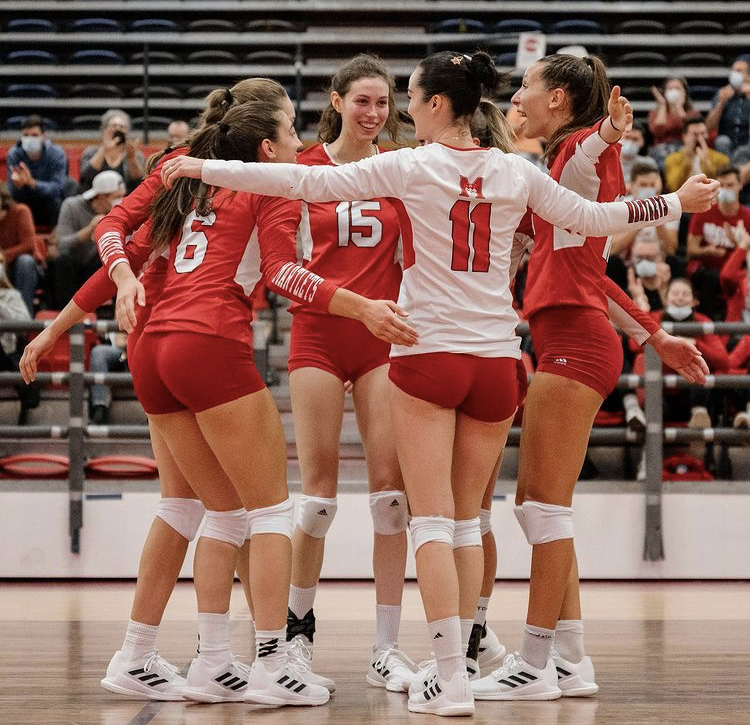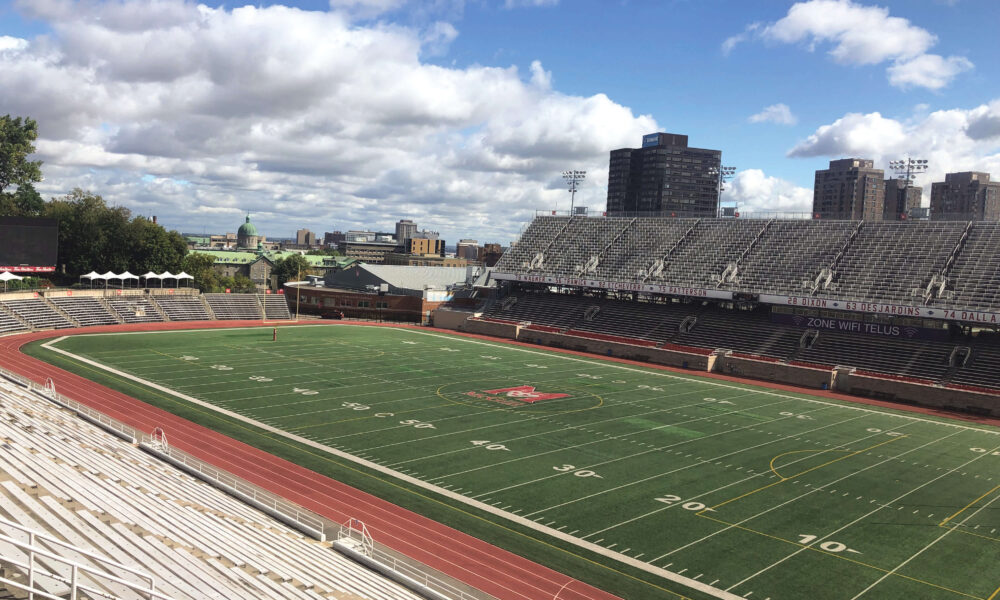Following the spike in COVID-19 cases associated with the Omicron variant, McGill varsity athletes have, for the third time, been forced to press pause on their seasons and their training. After an announcement from the RSEQ confirming the postponement of all sports due to measures imposed by Quebec’s Ministry of Health, McGill Athletics announced on Jan. 6 that sports would be postponed indefinitely. Although in-person teaching is slated to start again on Jan. 24, there has been no definite date set for the resumption of extracurriculars, including sports. Further, once sports are given the go-ahead, teams will be given two full weeks to practice before they are able to compete.
Many of those athletes who rely on their sport for structure and stress relief were disappointed by the announcement. Chloe Fleurent-Gregoire, a master’s student in nutritional science and member of the McGill Track and Field team, misses the support of her team and her sport.
“[Being in] my final year of eligibility, it’s really disappointing to finish really abruptly and [it’s] very isolating without being surrounded by teammates,” Fleurent-Gregoire said. “Studies seem harder without daily, structured sport.”
With the ever-changing COVID-19 situation, Fleurent-Gregoire is unsure when she and her teammates will be able to return to competition.
While McGill Athletics is closely monitoring the situation—sending out emails whenever they receive updates regarding governmental restrictions—athletes are becoming frustrated with what many view as overly restrictive policies.
However, one student group is standing up for both varsity athletes and other students: The McGill Varsity Sports Council. Composed entirely of students from a wide variety of varsity teams, including members from teams that recently saw their seasons axed, the group serves to represent the interests of McGill athletes to the university’s administration.
In a recent Instagram post, the council was disappointed with how the Quebec government has handled athletics and recreation during the pandemic, especially the recent decision to postpone the seasons of many teams.
They expressed their despondency that the government appears to have no definite end goal for the suspension, and no plan for the long-term provision of safe sport for communities in Quebec. The council’s VP Communications and U3 student Owen Cumming expressed his distress at the “all or nothing” approach.
“Quebec needs to look for safer ways to keep things going,” Cumming said. “Increasing social distance and reducing the amount of people training at once is still training. However, when shutdowns occur, we immediately go back to step one, [full cancellation]. The mindset is not to keep things going.”
The council was also confused by the decision to omit student athletes from the elite sport exemption, a rule which allows elite athletes to continue to practice, with increased safety measures, despite the public health restrictions. The council wishes for clarity in this choice, and wants answers from the Quebec government as to why university sport is sidelined. The council’s chairperson, Evelyn Silverson-Tokatlidis, a fifth-year student on the women’s rugby team, stressed that for many student athletes at McGill, sport is more than just a game.
“You have so many students [at McGill] trying to get recruited to take their sports to the next level,” said Silverson-Tokatlidis. “But athletes who have been out of their sport for the last two years from schools in Canada can’t have the same stats or film as someone from the United States. There are countless examples of peoples’ careers being impacted by these shutdowns.”
Cumming further noted that other provincial leagues, like the Quebec Junior Hockey League, are being allowed to continue despite the circumstances.
“The huge frustration is that university students are often coming to play high level sports, which is an equivalent thing,” Cumming said. “We [varsity sports] are not an amateur league.”
The council hopes that their message can start more conversations about athletics and wellness at the university, despite the measures imposed by the Quebec government.
“The goal of every team at McGill, as well as the council and the athletics administration, is how we get people to feel more pride for their school through athletics,” said Cumming. “Things will be slow to move, but we want to provide transparency and be the outlet for the voices of student athletes.”
The two council members also acknowledged the hard work done by the staff at McGill athletics to get sports started up again in Fall 2021, and highlighted that most legislative hurdles stem from the government, not from the university
“We find that because of the constraints on McGill athletics administration imposed by the government, especially with how late cancellation decisions are made, the voices of athletes are rarely being considered,” said Cumming.
The group wrapped up by acknowledging that the closure of health and fitness facilities across the province is not only affecting student athletes, but the community as a whole. During freezing cold Quebec winters, gyms and fitness facilities are often the only option for many to stay active. Furthermore, the mental health benefits of exercise are enormous, especially for a student body that has spent two exhausting years schooling online.
“Two years ago, almost a quarter of the student body used McGill athletics facilities,” said Silverson-Tokatlidis. “There are so many people who love to run on the treadmill and lift weights and love that release from their day-to-day lives.”
Matthew Beaudet, U2 Engineering and member of the McGill Cross Country team, has found the transition to training outside and alone to be challenging.
“The most difficult thing was returning to training alone outside,” said Beaudet. “I’ve been doing pretty much all of it alone [….] But I’ve tried to focus on what I can control, so just continuing to train for when races resume,” said Beaudet.
While most track athletes have been training solo, other programs, like McGill women’s volleyball, have been able to keep in touch through various virtual platforms. Third-year middle blocker Ramou Taal is grateful for the support of her teammates, but is anxious to get back on the court.

“Luckily, our team is a close group of girls and we have been in contact, whether that was through our Zoom sessions or through social media, but we have all been on the edge of our seats waiting for a return,” Taal said.
Although some teams like volleyball have been able to keep in touch virtually, the ability to train and compete with teammates in person is beneficial for the athletes’ mental and physical well-being.
“Beyond anything else, playing sports has such a huge value to people, no matter the level,” said Silverson-Tokatlidis. “It hurts people to not be able to live their lives through the sports they choose, it hurts their physical and mental health.”
While students are returning to in-person classes on Jan. 24, it remains to be seen when varsity athletes and other McGillians who regularly use the athletics centre will see a glimpse of normalcy.









